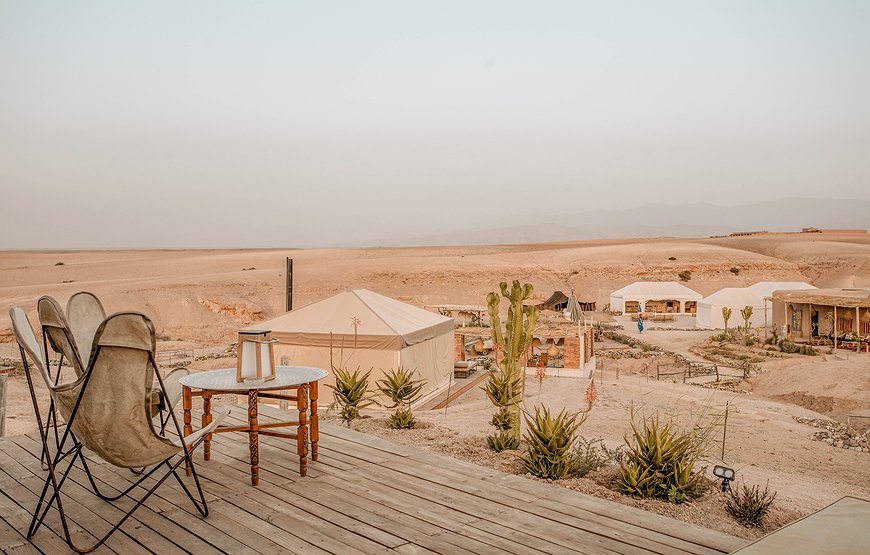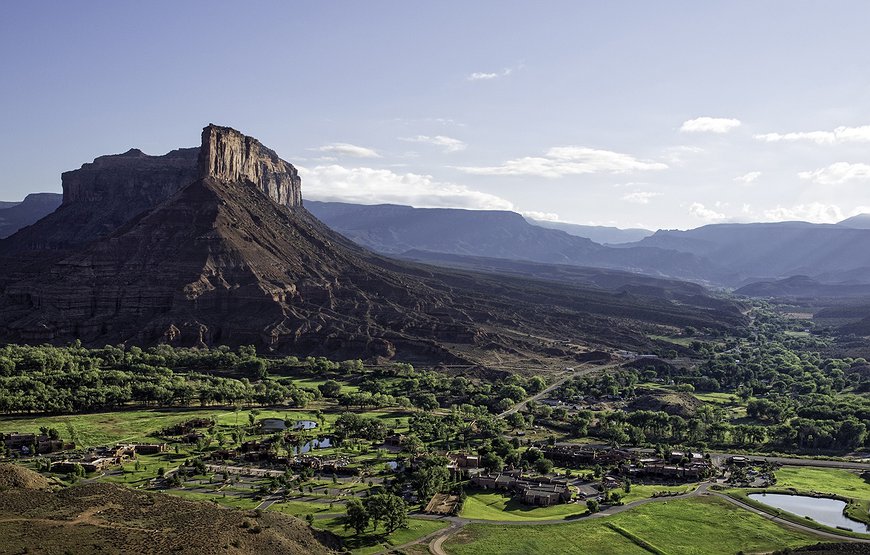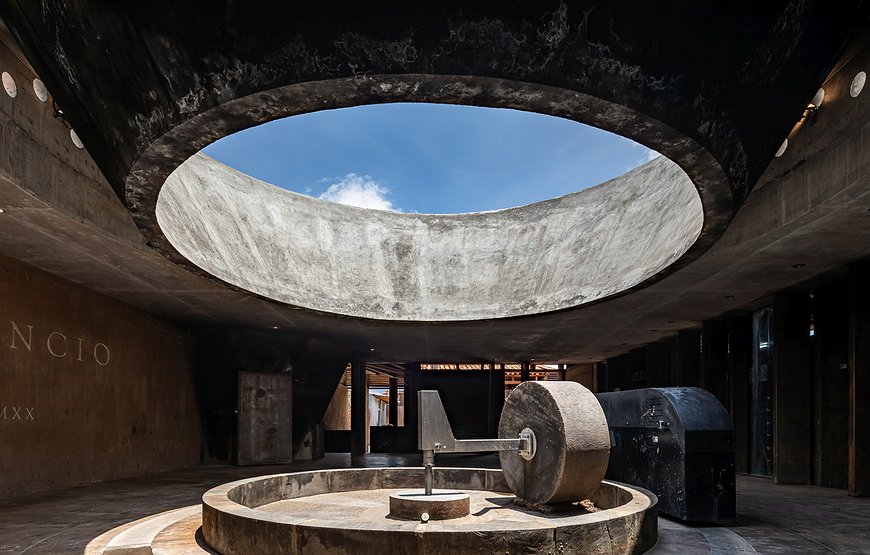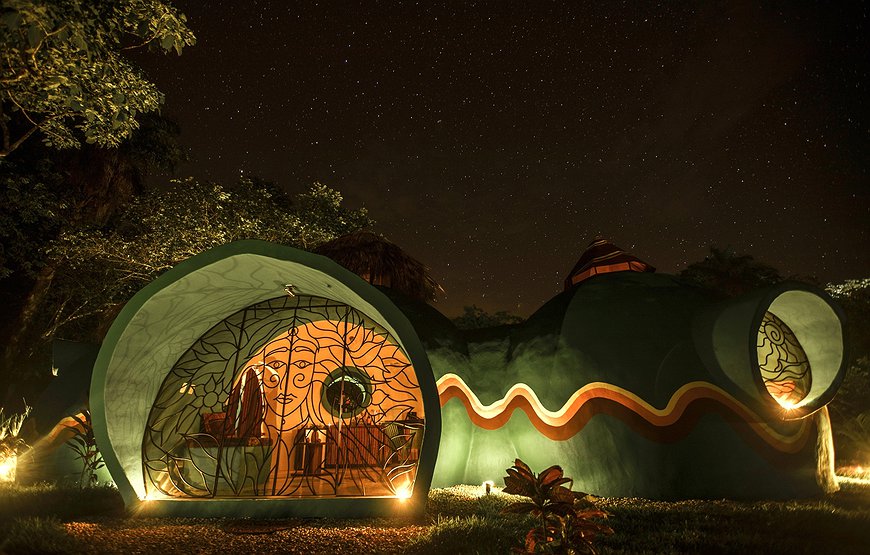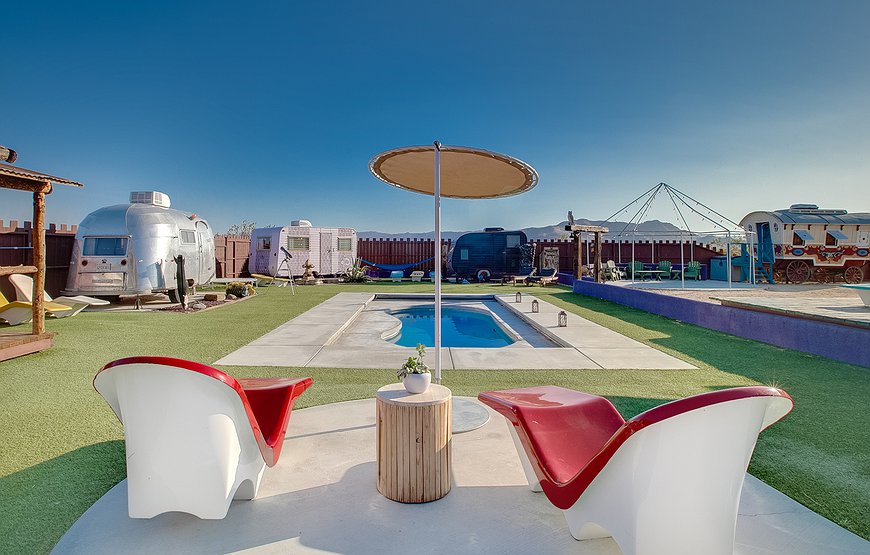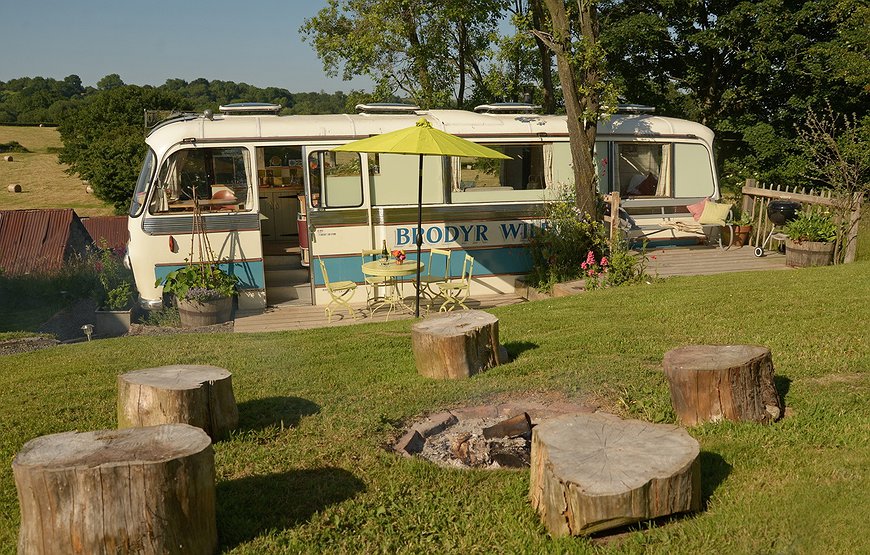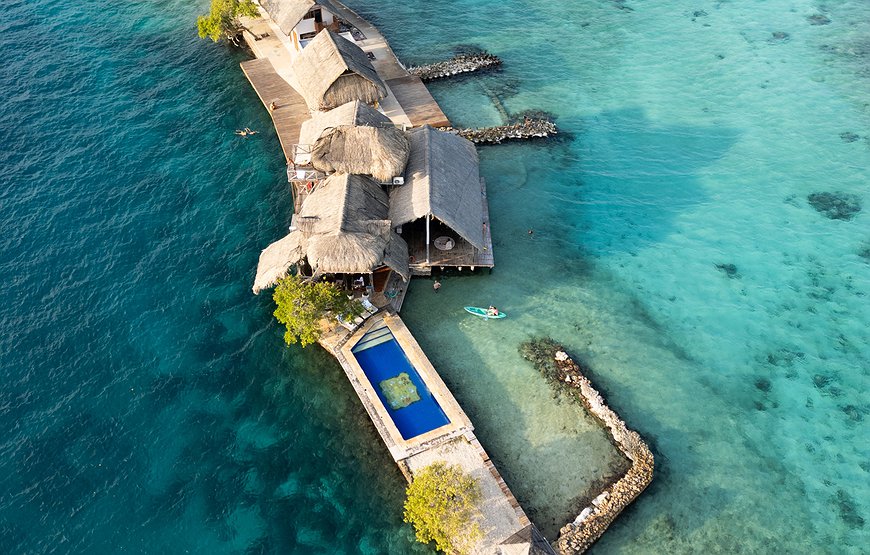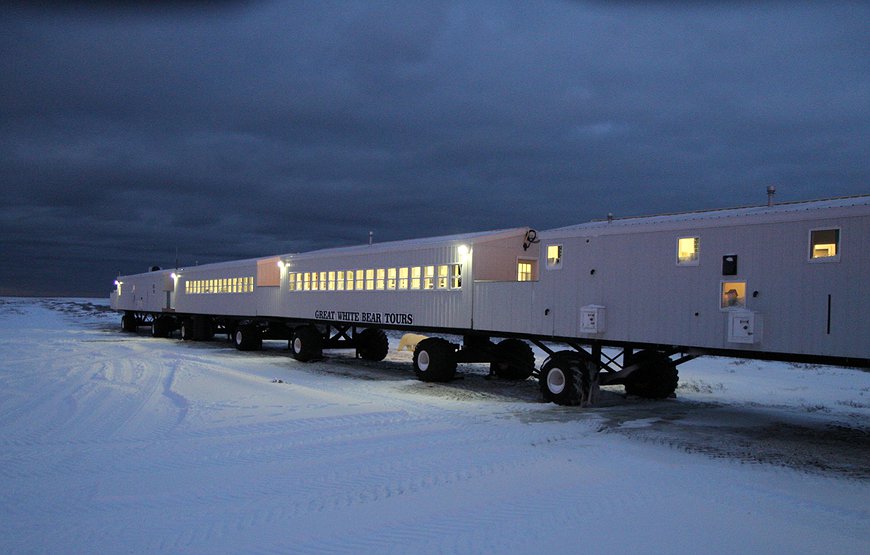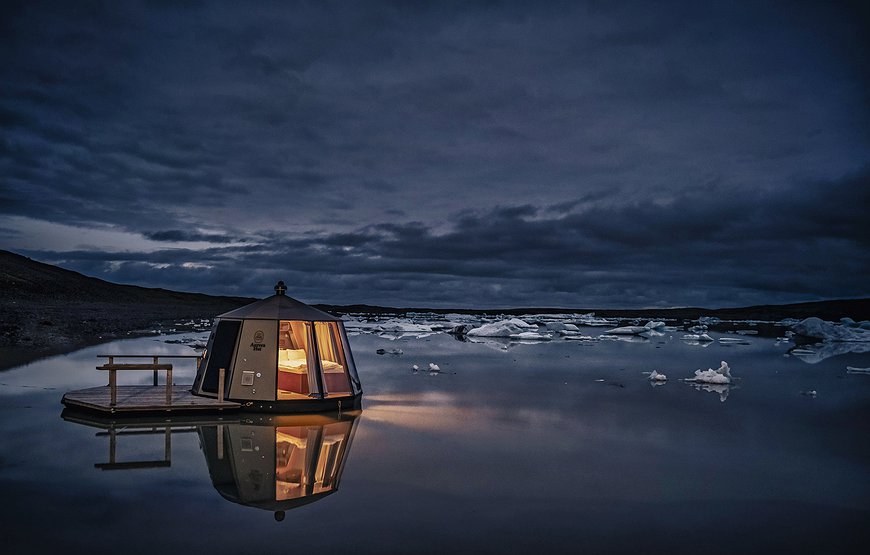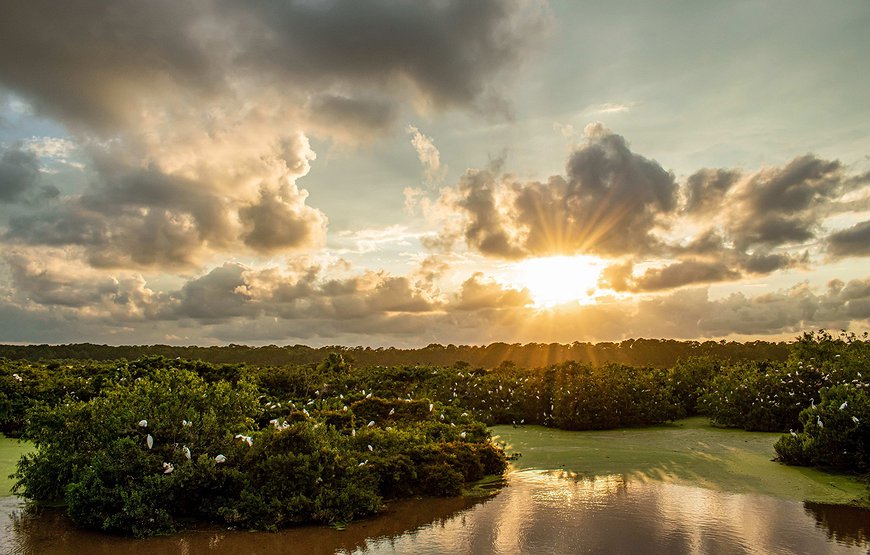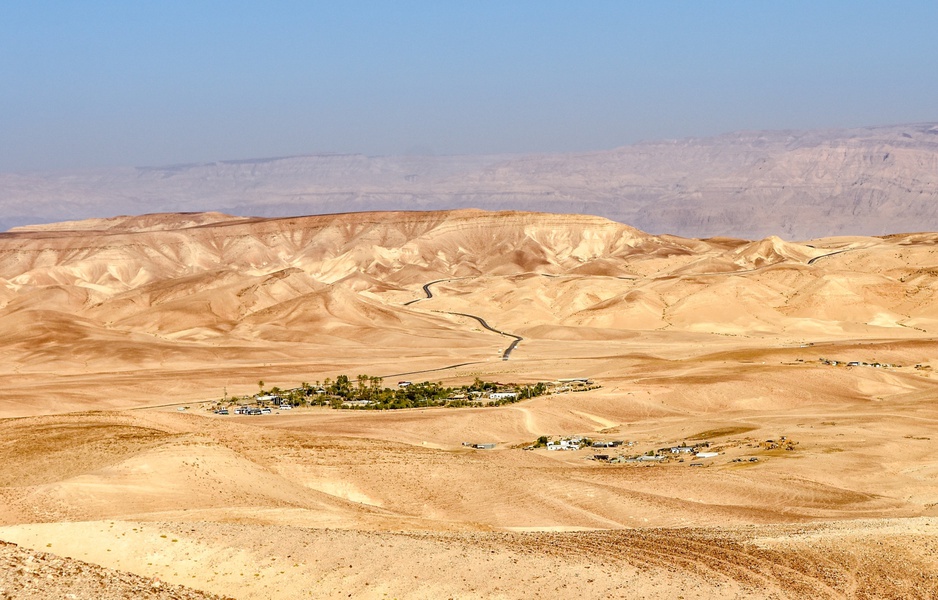
Between the ancient fortress of Masada and the stark beauty of the Dead Sea lies Kfar Hanokdim, a desert lodging experience that walks a fine line between cultural immersion and desert tourism.
Constructed in the Judean Desert near Arad, this collection of goat-hair Bedouin tents, stone lodges, converted buses, and glamping-style sukkot (desert huts) has attracted travelers seeking something beyond Israel's usual historical and religious sites for decades.
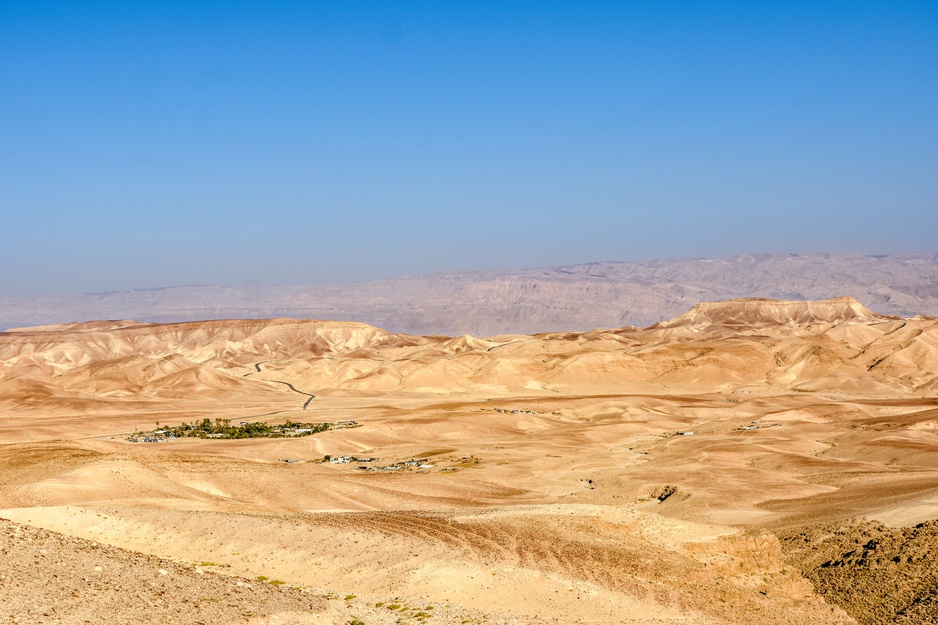
The village of Kfar Hanokdim in the Judean Desert
Created in 1991 by Yehoram Roded, a man passionate about Bedouin traditions, Kfar Hanokdim attempts to bridge the gap between authentic Bedouin hospitality and the practical needs of modern travelers.
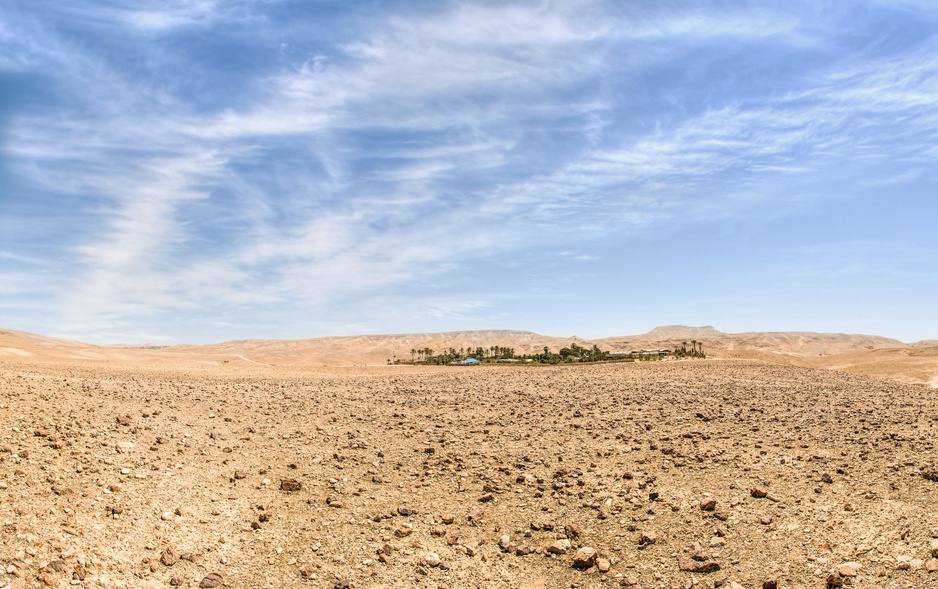
Oasis in the desert
He was inspired by his deep yearning for the spirit of Sinai.
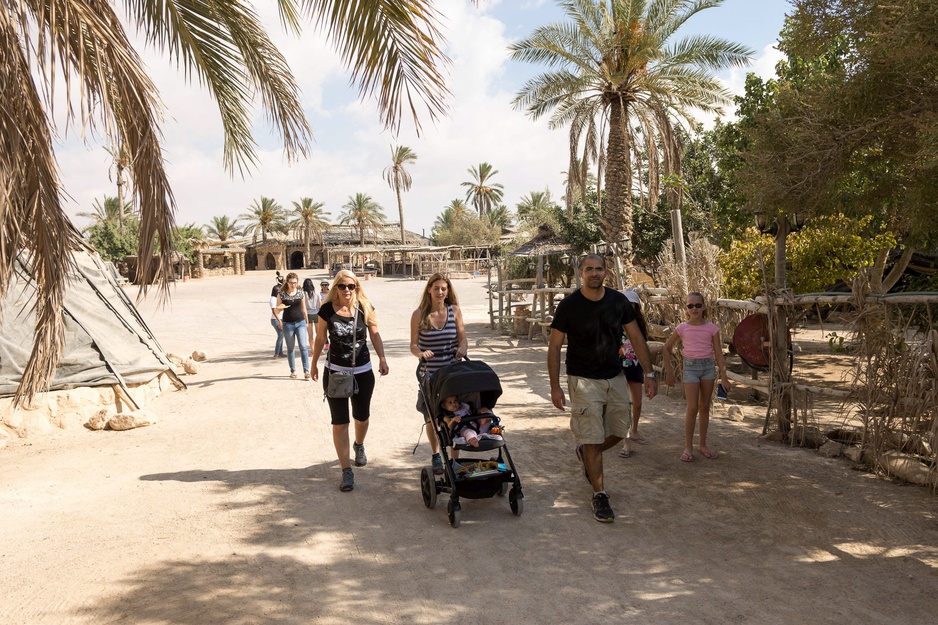
The careful landscaping of the 12-acre site - desert plants arranged around stone pathways - creates an atmosphere more manicured than natural.
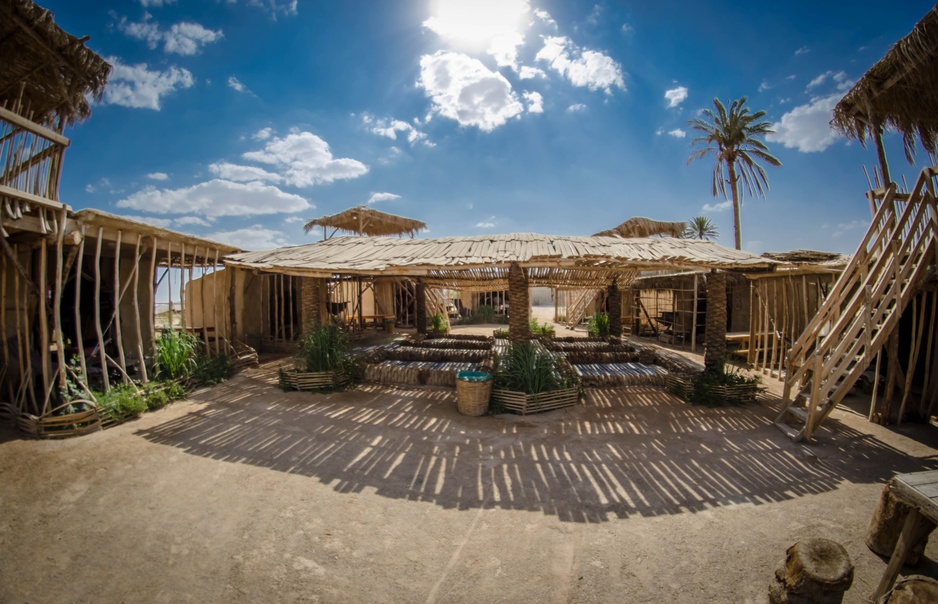
What cannot be manufactured, however, is the desert itself. The clear night skies offer spectacular stargazing, while the surrounding hills and valleys provide striking hiking opportunities. The location, approximately 15 kilometers from Masada, makes it a logical stopover when you are exploring Israel's southern regions.
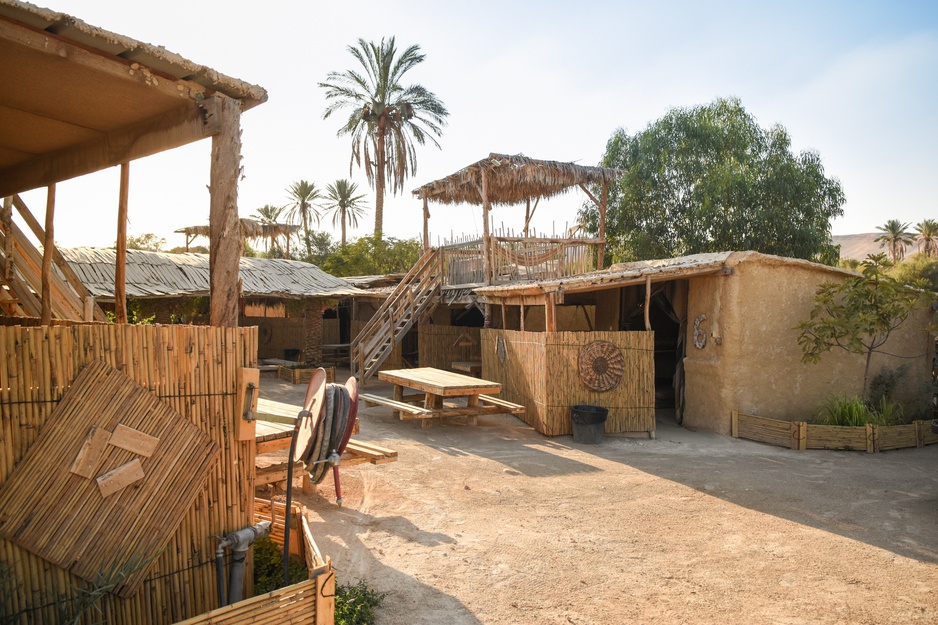
If you are seeking to understand contemporary Bedouin life in Israel, Kfar Hanokdim provides a gentle introduction rather than deep insight. The complex reality of Bedouin communities in modern Israel - including ongoing land disputes and social challenges - remains largely outside the frame of this tourism-focused experience.
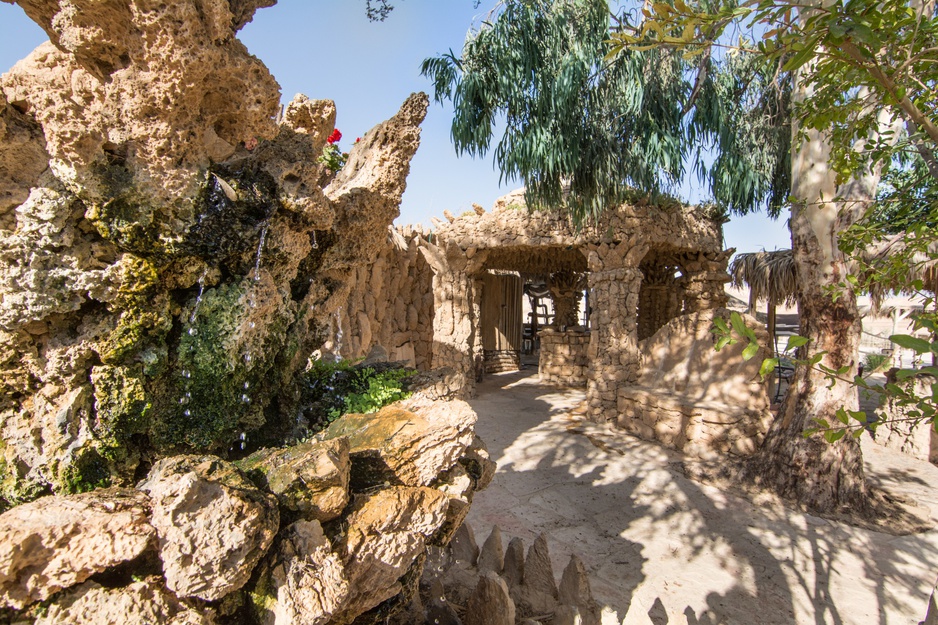
Yet for all its inevitable compromises, Kfar Hanokdim offers something increasingly rare in our hyperconnected world: a night in the desert, the ancient silence broken only by the wind, and a glimpse, however staged, of a way of life that has endured in these harsh landscapes for centuries.
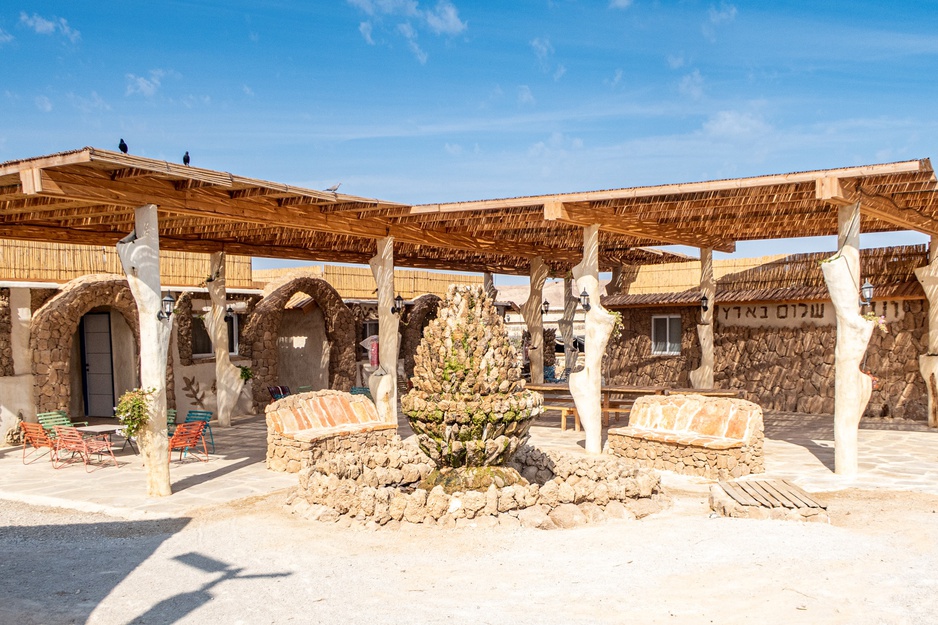
Kfar Hanokdim actively promotes tourism in the region by engaging in local initiatives, like constructing hiking trails and creating new routes through the desert.
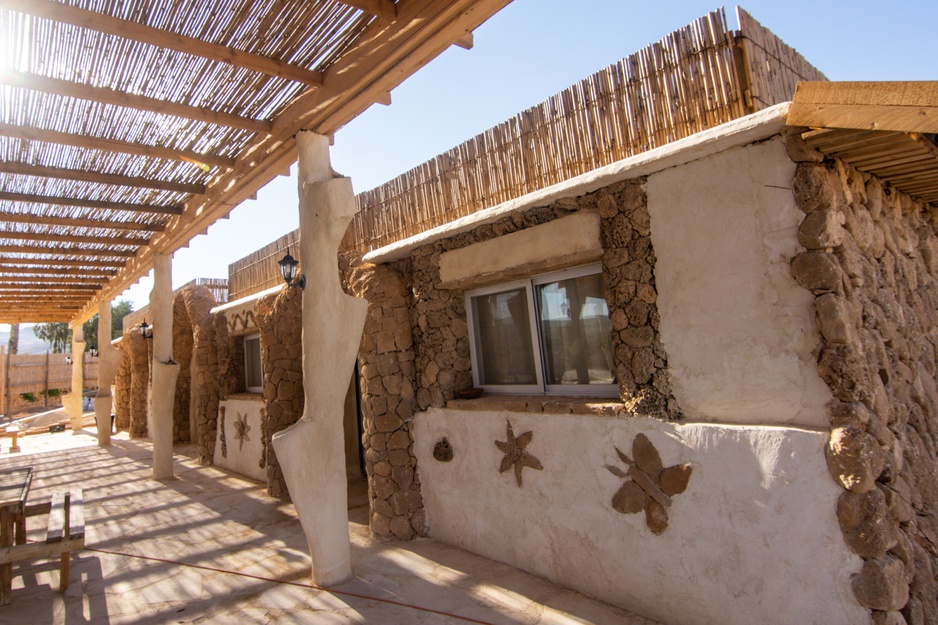
Stone lodge
The compound includes traditional black goat-hair tents where you can sleep dormitory-style on mattresses, more private family tents, and stone lodges with proper beds and bathrooms for those of you unwilling to embrace the full nomadic experience.
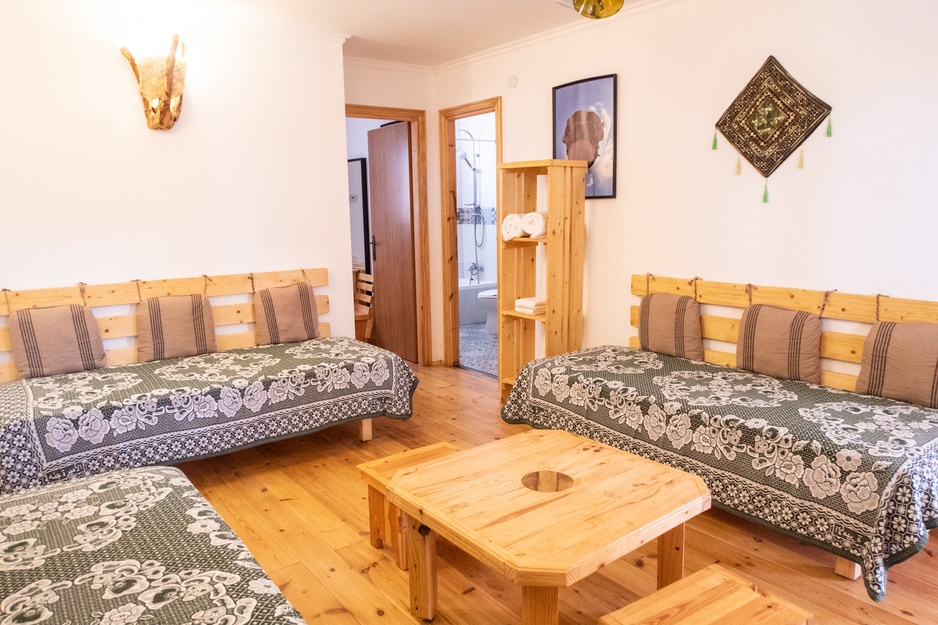
The hippie resort employs local Bedouin staff who share aspects of their culture - serving sweet tea with desert herbs, baking flatbread in earthen ovens, and leading camel treks into the surrounding desert landscape.
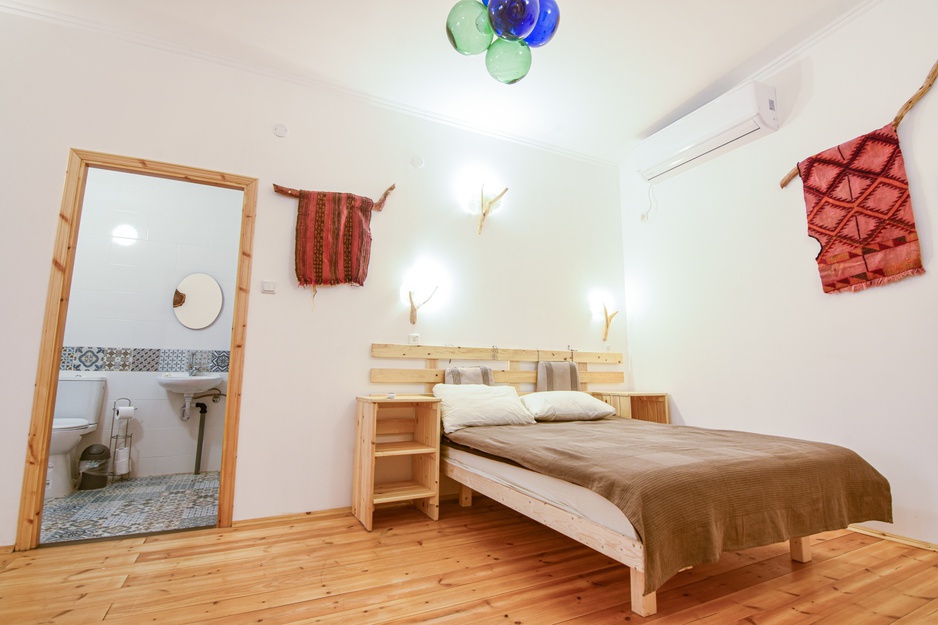
Evening programs often include music around the campfire and explanations of Bedouin customs, though you should recognize these as curated experiences rather than spontaneous cultural exchanges.
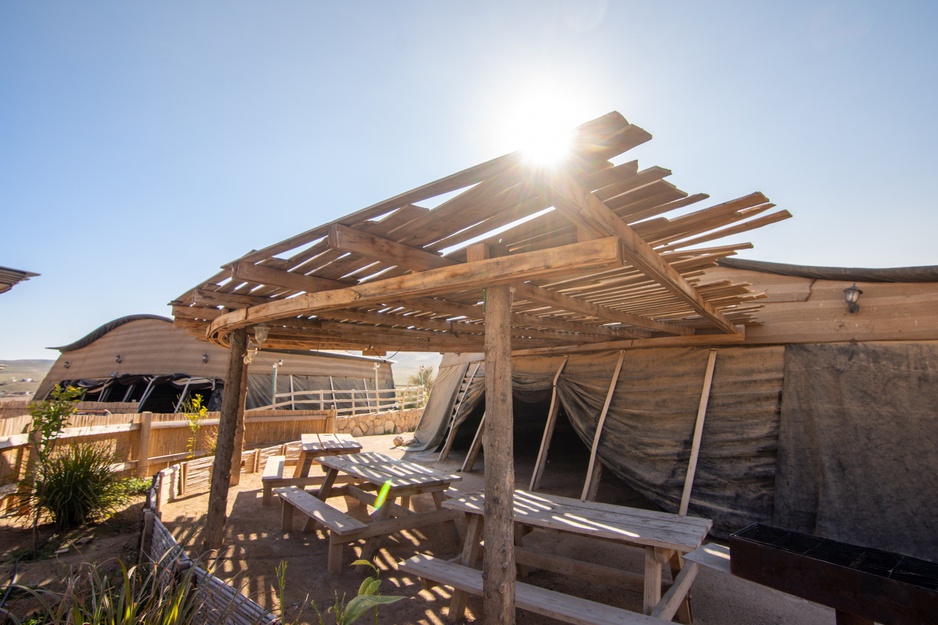
Bedouin tent
Meals consist of simple but hearty Middle Eastern fare served communally, typically including hummus, tahini, salads, rice and chicken. The setting, under a large open tent or beneath the desert stars, lends a certain romance to even basic dishes.
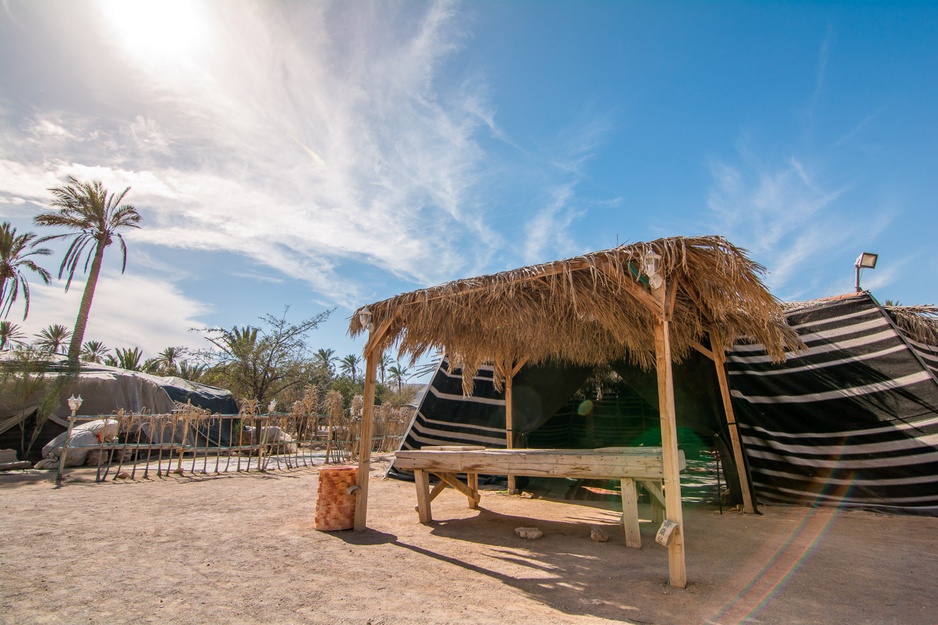
Glamping-style sukkot (desert hut)
While Kfar Hanokdim bills itself as an authentic Bedouin experience, there are - luckily - some inevitable compromises with modernity.
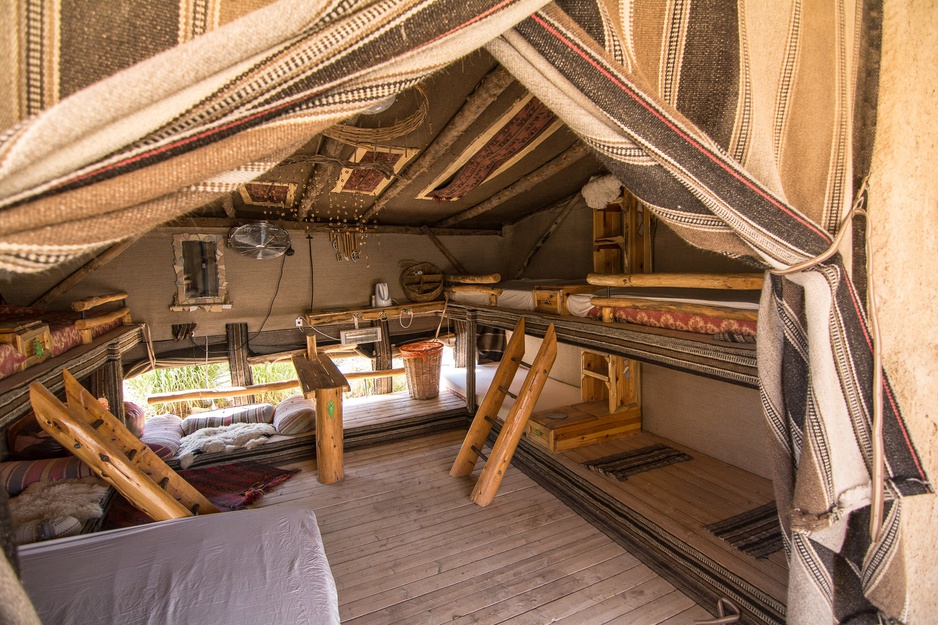
Clean shared bathrooms, electricity in most areas, and Wi-Fi access in common spaces provide comforts that true nomads would find foreign.
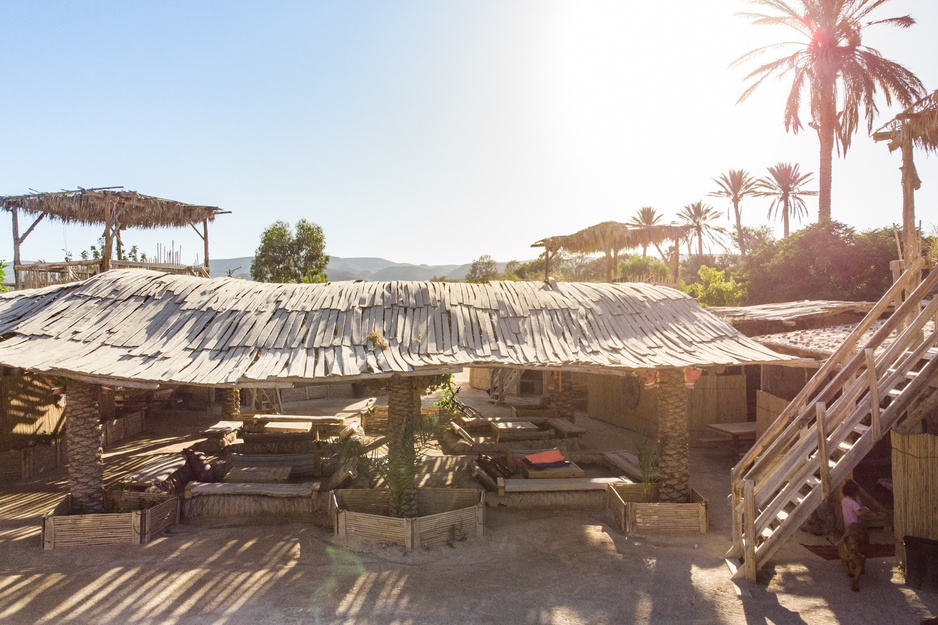
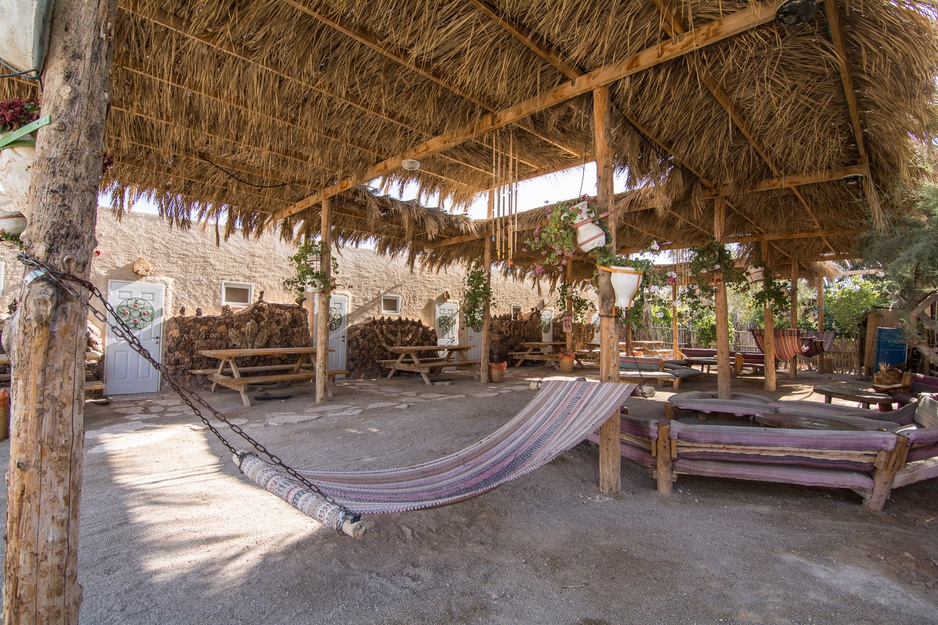
P.O.B 1568, Arad, 89100, Israel

